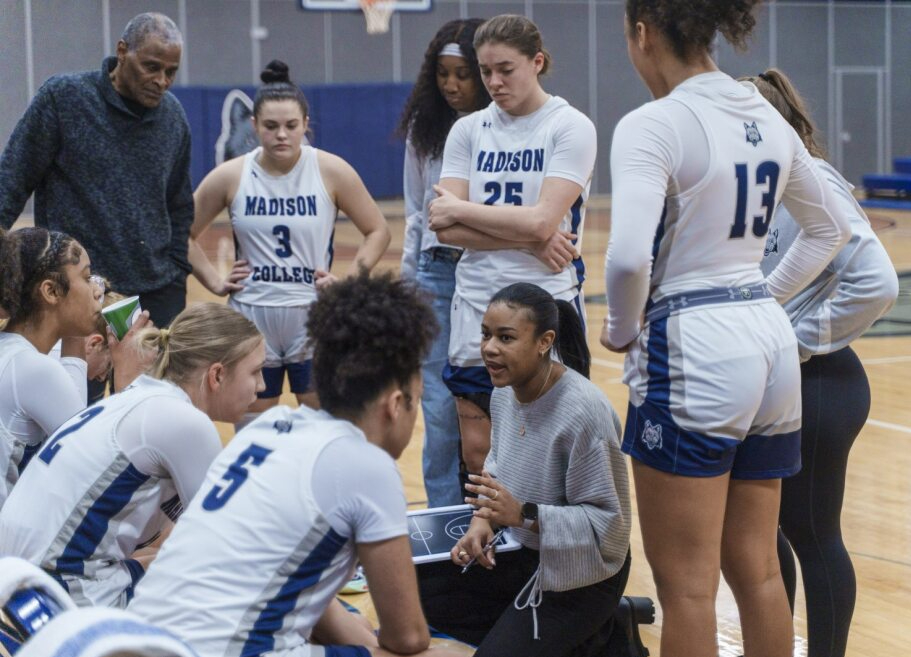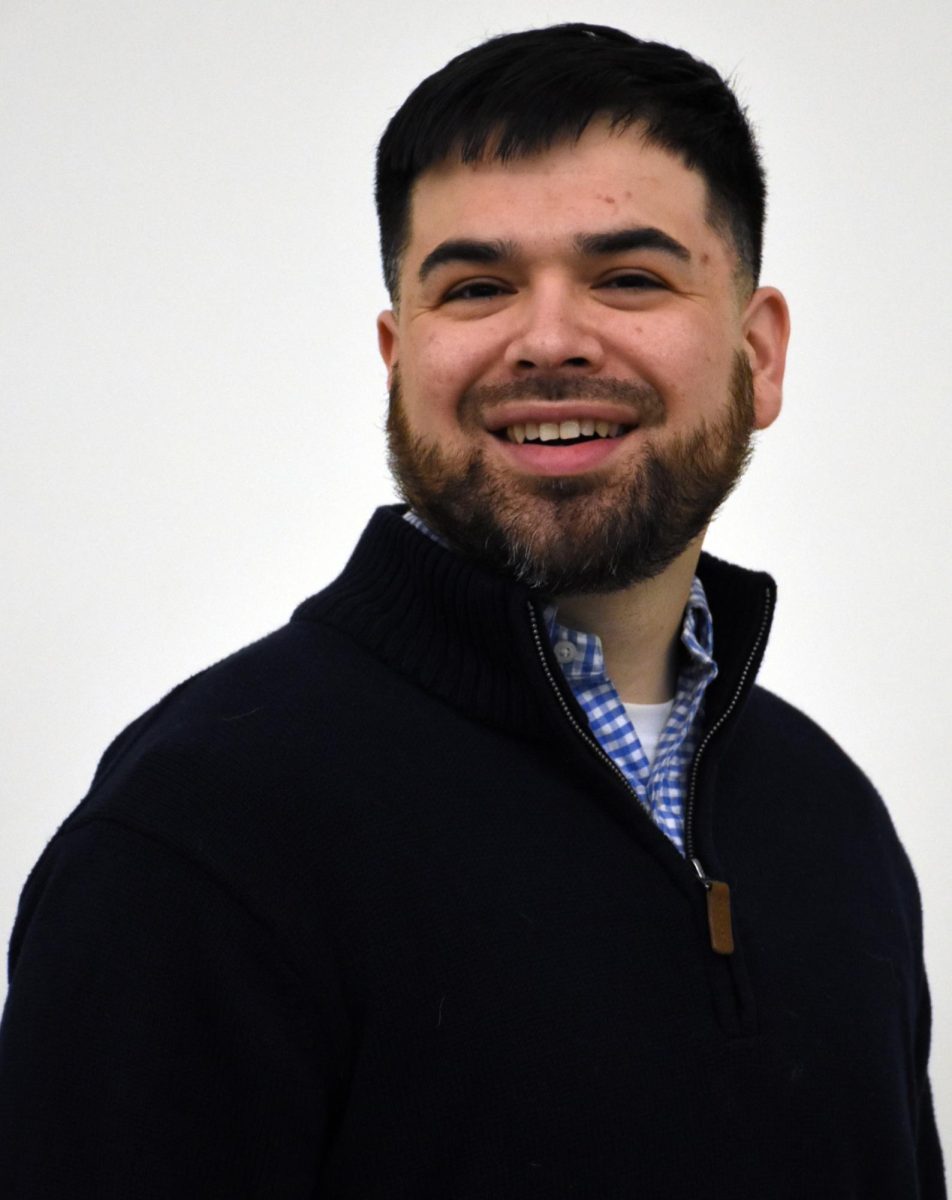Madison College hosted its last student forum for a presidential candidate on April 2. Anchored by Director of Student Life Ellie Rome, the forum featured Dr. Tim Casper introducing himself and answering questions on topics ranging from shared governance to artificial intelligence.
Currently serving as Madison College Interim President, Casper joined the college in 2011 and has since led the Budget Office, Institutional Effectiveness, Communications and Marketing and Technology Services departments, serving as the college’s accreditation liaison officer.
For the past four and a half years, he has served as Executive Vice President of Student Affairs, responsible for all aspects of student affairs, enrollment services and intercollegiate athletics.
Casper earned a bachelor’s degree from the University of Wisconsin-Green Bay, a master’s degree in public affairs from the University of Wisconsin-Madison and a doctorate in educational leadership from Edgewood College.
Casper talked about his early roots in higher education, listening to his grandfather, a community college instructor and elected official, discuss the work he and other elected officials were doing to address issues.
“This was really exciting and interesting for me to think about people coming together to identify challenges and to seek to improve,” he said.
When asked about shared governance, particularly the student voice, and how he would support it, he said, “I see it as really critical to have that student voice informing the work that we do at our college because by doing so, we are continuing to be responsive to the needs that each of you articulates.”
He stressed the importance of supporting nontraditional, first-generation students and balancing work and family by listening to their needs. Since his tenure, he has witnessed student voices raise concerns about textbook affordability, allowing them to create a textbook rental program.
The students’ voices came forward again when they recognized that they couldn’t access enough food. The college invested in food pantries, not only at Truax campus but also at regional campuses.
“We will continue to make adjustments to help students with the variety of life experiences they are bringing into the variety of needs that they have so that they can succeed at Madison College,” Casper said.
One student asked how Casper plans to engage with student governance and other groups to find solutions when what looks best from the top-down view may not work for those involved.
Casper highlighted the need to engage with students and flesh out a deeper understanding of what quantitive data might tell us about aspects of student life. He underscored the need to look at data about academic success, satisfaction with various college services, student engagement and feeling of belonging at the institution.
“How do we unpack that to understand at a more granular level what the student’s experience is?” asked Casper.
One way is to focus on getting people involved so those directly doing this work could develop a new way for a program or change a policy.
He said that he and other senior leaders participate in student government and student events to better understand the student body.
Casper said he makes it a point to seek out students and talk to student employees at various work centers to get their insight about what is happening at the college.
He said that his vision for the college was to continue serving the communities. He referred to his opening remarks when he mentioned significant challenges are coming forward for the college related to student learners who were impacted by the pandemic.
Those students may not yet have come to Madison College but are still in high school. Many of the students who were impacted are still in the K-12 pipeline and will be enrolling at Madison College. He emphasized the need to develop those students.
Casper spoke about changes in artificial intelligence and the need for student preparation. These will impact the type of career opportunities that each student has and affect the kind of four-year bachelor’s degrees that universities create.
He specified that they are preparing students with virtual reality, changes in metal fabrication and other changes in the student learning experiences.
He acknowledged that artificial intelligence will replace many employee responsibilities but emphasized that businesses still need employees. Some work may now require employees to have some responsibility for communication skills. The college needs the students to learn how to partner with customers, accept feedback and work with recommended changes.
“We are going to have to focus on those very human skills even more so than we do today because we know that currently, those are the expectations of employers for each of you as you leave our institution,” Casper said.


























